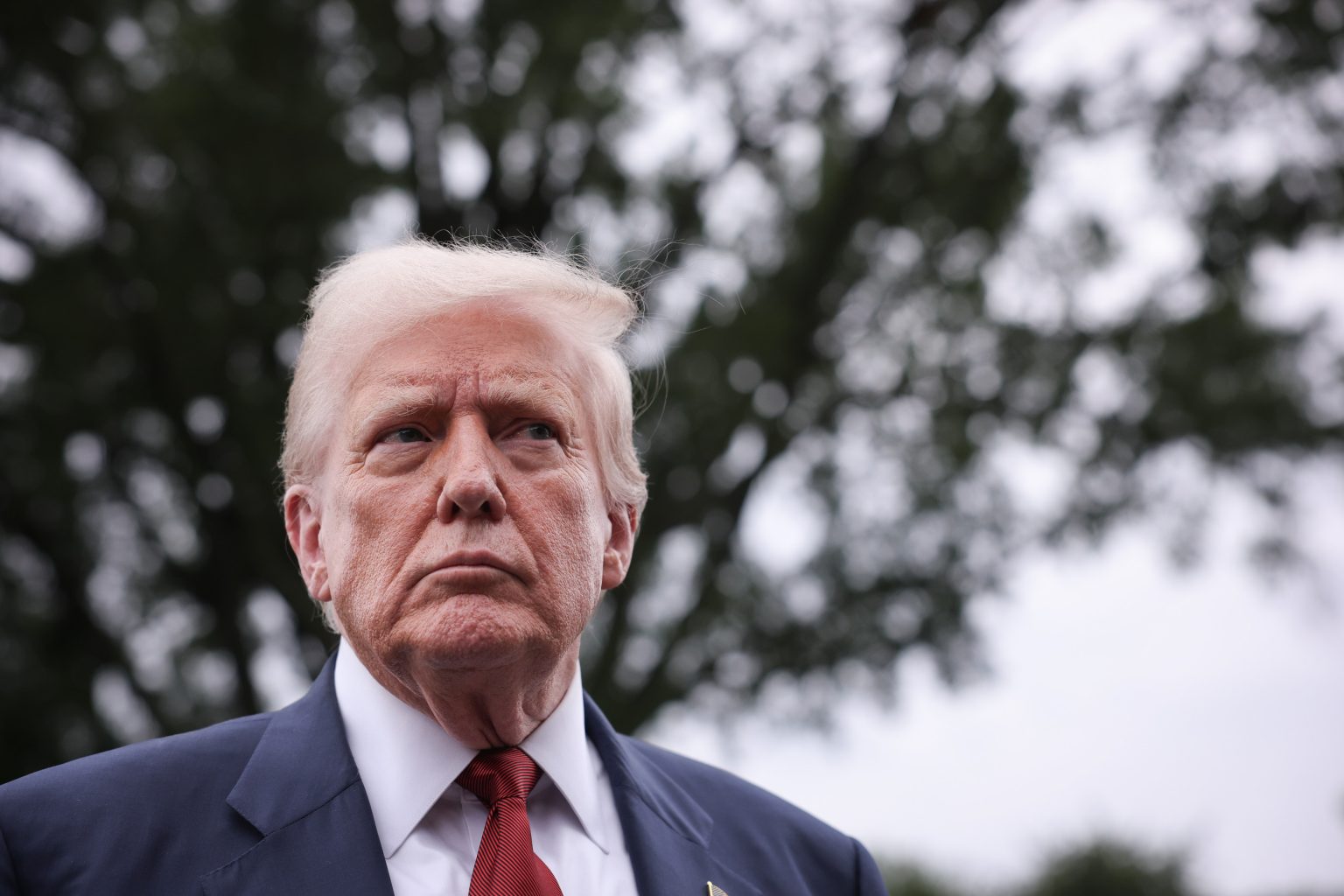Trump’s Intel Deal Stirs Republican Criticism Amid Shift in Economic Approach
In a move that has raised eyebrows across the political spectrum, President Donald Trump recently announced a landmark deal with Intel that would grant the federal government a 10 percent stake in the struggling computer chip giant. The arrangement, valued at approximately $11 billion, represents an unusual instance of government intervention in private business from a Republican administration. As Trump framed it in his August 22 Truth Social post, “The United States paid nothing for these Shares… This is a great Deal for America and, also, a great Deal for INTEL.” The president emphasized that building leading-edge semiconductors and chips is “fundamental to the future of our Nation,” positioning the deal as a strategic investment in American technological sovereignty.
The arrangement comes at a crucial time for Intel, which has faced significant challenges following years of strategic missteps in the competitive semiconductor industry. Under this deal, the U.S. government would acquire its stake through the conversion of $11.1 billion in previously issued funds and pledges. Intel has been careful to note that this arrangement doesn’t grant the government access to company information or representation on the Board of Directors. The White House defended the move, with spokesperson Kush Desai telling Newsweek that “the Trump administration is ensuring that taxpayers are able to reap the upside of the federal government’s investments into safeguarding our national and economic security.” Intel’s CEO expressed gratitude for the administration’s confidence, highlighting Trump’s “focus on U.S. chip manufacturing” as driving “historic investments in a vital industry that is integral to the country’s economic and national security.”
However, the deal has sparked significant pushback from within the Republican Party, particularly among fiscal conservatives who view it as a departure from traditional free-market principles. Senator Rand Paul of Kentucky didn’t mince words in his criticism on X, writing, “If socialism is government owning the means of production, wouldn’t the government owning part of Intel be a step toward socialism? Terrible idea.” Senator Thom Tillis of North Carolina echoed these concerns in an interview with journalist Major Garrett, questioning how the deal “reconciles with true conservatism and true free market capitalism.” Tillis expressed particular concern about the precedent this sets, suggesting it “starts feeling like a semi-state owned enterprise, à la CCCP” and questioning whether “any opinion except the opinion of the administration is really going to matter in boardroom discussions going forward.” The criticism highlights a growing tension between Trump’s economic nationalism and the free-market orthodoxy that has long defined Republican economic policy.
Interestingly, the deal has drawn support from unexpected quarters. Senator Bernie Sanders, an independent who caucuses with Democrats and is known for his democratic socialist views, praised the arrangement, stating, “If microchip companies make a profit from the generous grants they receive from the federal government, the taxpayers of America have a right to a reasonable return on that investment.” This unusual alignment between Trump and Sanders highlights the complex ideological crosscurrents at play. Meanwhile, business voices like Kevin O’Leary of Shark Tank fame have joined Republican critics, stating on X: “The U.S. government just announced it’s taking a stake in Intel, and let me be clear: I abhor this idea. America has thrived for over 200 years because the government stayed in its lane while the private sector attracted global capital and rewarded innovation. We let bad companies fail. That’s capitalism.”
The political dynamics surrounding the deal have also prompted comparisons to past government interventions, with Democratic strategist David Axelrod pointing out what he sees as Republican hypocrisy: “During the Great Recession in ’09, when @BarackObama stepped in and the government took a stake in GM and Chrysler to save them from collapse, the @GOP howled ‘socialism!’ Trump now demands Intel give the government a 10% stake in their company, and what does the GOP say? Crickets. Nada. Nothing.” This observation highlights how the deal represents not just an economic policy decision but a potential realignment of partisan positions on government’s role in the economy. For the Trump administration, the Intel deal appears to be part of a broader economic strategy that combines elements of industrial policy with a focus on national security and technological competitiveness, particularly vis-à-vis China.
Looking ahead, President Trump has indicated this may be just the beginning of a new approach to government-business relations. When speaking to reporters at the White House on Monday, he expressed hope to have “many more cases like” Intel, suggesting this deal could represent a template for future arrangements. This signals a potential paradigm shift in Republican economic thinking under Trump’s leadership—one that prioritizes strategic industries, national security considerations, and American manufacturing over traditional free-market principles. As the debate continues, the Intel deal stands as a significant test case for how far the Republican Party’s economic orthodoxy might bend to accommodate Trump’s vision of economic nationalism, and whether such interventions will ultimately strengthen or weaken America’s competitive position in critical industries like semiconductor manufacturing.


